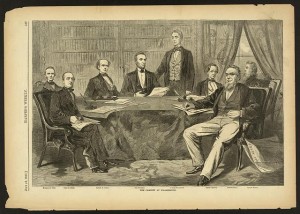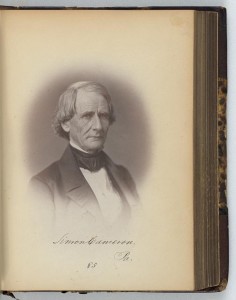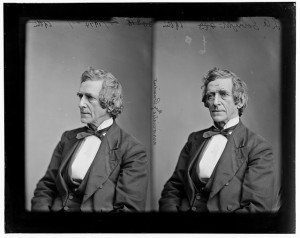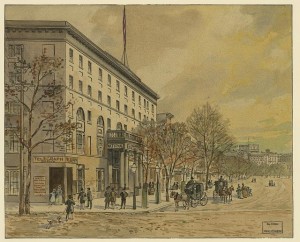From The New-York Times November 21, 1861:
THE GOVERNMENT AND THE PRESS.
Arrangements have been made between the Heads of Departments in Washington and the representatives of the New-York Press, by which, it is hoped, much of the inconvenience and dissatisfaction hitherto connected with the publication of official documents may be avoided. Up to the present time, there has been nothing like system introduced into this matter; it has been left to take care of itself. Every leading newspaper has kept three or four reporters in Washington, mainly to watch the Departments, and get hold first of such official documents as might be in their possession. The business thus became a mere scramble, entailing infinite annoyance upon the Secretaries and Heads of Bureaus, and leading to practices in the highest degree derogatory to the character and position of the Press. It became dangerous to leave a public document upon any Secretary’s desk, lest it should mysteriously disappear and make its first appearance in the columns of some enterprising newspaper. Some journals, much more zealous for news than for the preservation of their self-respect, devoted themselves to the purchase of special favors in this way, by filling their columns with fulsome flattery of special members of the Government who had them to bestow, and unscruplous abuse of others who might decline thus to traffic for their own advantage in documents belonging to the Government and the people at large. The whole thing was becoming a nuisance to the Secretaries, fatal to the independence and self-respect of the Press, and degrading to the gentlemen employed as reporters at Washington.
The matter was finally taken in hand by the Secretary of War, and put upon a better footing, with the hearty concurrence of every branch of the Government. It has been agreed that all official documents of whatever kind, emanating from the Departments, shall be delivered to the general agent of the Associated Press at Washington, — and to him alone, — for prompt and simultaneous transmission to such papers as may desire to receive them by telegraph. This will put an end at once to complaints or suspicions of favoritism on the one side, and of bad faith or the betrayal of confidence on the other. It will relieve the Secretaries from the annoyance of being dogged every day by an army of reporters, eager to get sight of some official document in their possession, and will enable reporters and correspondents to devote their attention to some more intellectual, department of their profession, than that which has hitherto engrossed the larger share of their attention.
In England and France this matter has long been reduced to as much method as any other branch of the public service. The French Government publishes all its official documents in the Moniteur alone, leaving other papers to copy from its columns. In England every document which the Government desires to have made public is sent simultaneously to all the London daily journals: and such a thing as favoring one at the expense of another, with such intelligence, no matter what may be its position or political character, is utterly unknown. The same course will now be pursued here, to the very
It seems logical to give the information to the Associated Press, and its Washington correspondent was well-respected.
The chief Washington journalist for the Associated Press at this time was Lawrence A. Gobright, whom you can read about at Mr. Lincoln’s White House:
By the Civil War, Gobright was a newspaper veteran and the most experienced journalist in the city, having begun his reporting in Washington in 1834. When he died, the New York Times reported that respected Gobright “was one of the most honest, upright and faithful of men, and during the civil conflict he enjoyed the fullest confidence of President Lincoln and Secretaries Seward and Stanton, often being called upon to assist them in the preparation of proclamations and other important documents which were finally intrusted to his hands for telegraphing.”1 Gobright was a witness to and reporter of many of the important events of Lincoln’s presidency from his inauguration to his death.




